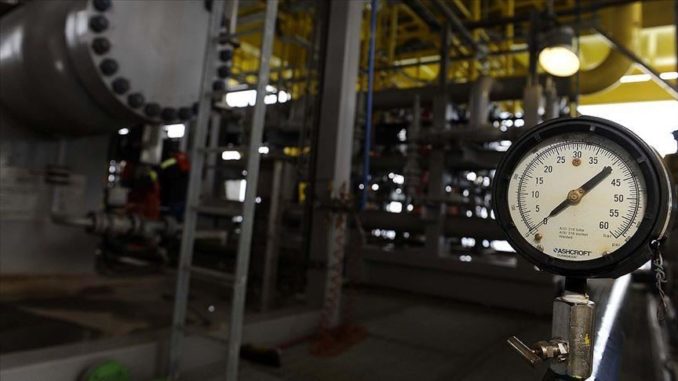
Members of the European Parliament (MEPs) voted in favor of extending EU gas market rules to pipelines coming from non-EU countries including the Nord Stream II, the European Parliament announced on Thursday.
“To provide legal clarity for operators and competitive gas supply for all Europeans, MEPs approved new gas market rules to bring incoming pipelines under EU law,” the Parliament said.
The new EU gas market rules, including EU competition rules, were adopted with 465 votes to 95, and with 68 abstentions.
The Parliament said the amended rules would create a more competitive EU gas market by ensuring that pipelines entering the EU’s territory are opened up to other gas operators other than the pipeline owners, as is the case with the EU’s internal gas pipeline market.
Consumers will benefit from more competition and hence lower prices, the EP argued.
The Parliament underlined that this revision also clarifies the legal framework for any future pipeline projects with non-EU countries, “including with the U.K. when it becomes a non-EU country.”
The amended rules will give exclusive competence to the EU when it comes to agreements on new EU gas lines with non-EU countries, and also in granting exemptions, according to European Parliament.
“The Commission may authorize the member state, in which the pipeline’s first entry point is located, to open negotiations on gas delivery from a new pipeline from a non-EU country, unless it considers this to be in conflict with EU law or detrimental to competition or security of supply,” it said.
The member state will have to consult other EU countries concerned before proposing an exemption from EU rules; however, it is up to the Commission to decide whether to grant the exemption, the EP explained.
For existing pipelines connected to EU pipelines before entry into force of this directive, a member state can decide on a derogation within one year after the entry into force of the directive provided it is not detrimental to competition.
“From now on, all gas pipelines from non-EU countries, including Nord Stream II, will have to abide by EU rules: third-party access, ownership unbundling, non-discriminatory tariffs and transparency. That translates into stronger energy security on our continent. This has always been the main goal of the European Parliament and I am delighted that we achieved it,” rapporteur Jerzy Buzek was quoted as saying.
The Nord Stream 2 project was announced on June 18, 2015, when Shell, Russia’s Gazprom, Germany’s E.ON and BASF along with Austrian OMV signed a memorandum of understanding for the construction of the project, which will add two additional pipelines to the original Nord Stream project.
The Nord Stream 2 project is planned to have a 55 billion cubic meter capacity, which will transverse from Russia to Germany across the Baltic Sea.
Following formal approval by EU ministers, the directive will be published in the Official Journal of the EU and enters into force 20 days later. Member states will have nine months to bring their national legislation in line with this directive.
The EU currently imports over 70 percent of its consumption of natural gas mainly from Norway, Russia and Algeria, mostly through pipelines.
BY ANADOLU AGENCY
